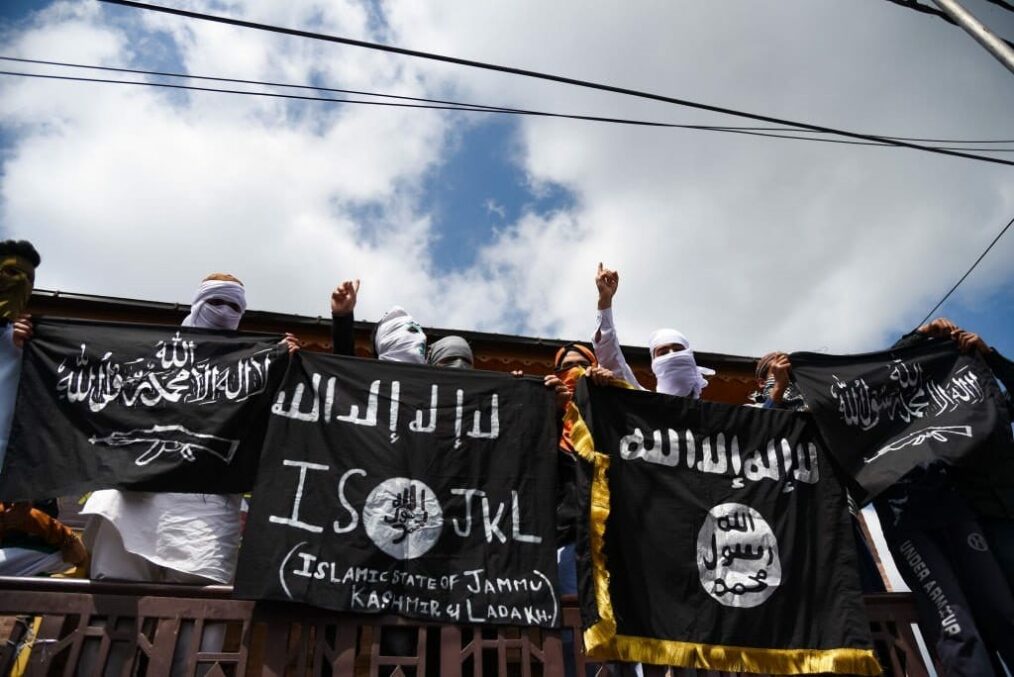The ideology of the Islamic State has taken a significant hold in Sub-Saharan Africa. The group’s ideology has spread from just the Islamic State in Iraq and Syria to a rapidly growing movement throughout Africa encompassing thousands of members. The Islamic State has various affiliates throughout Africa, including the Islamic State West Africa Province, Islamic State Central Africa Province, Islamic State Mozambique, and others who have pledged their allegiance to the organization.
The Islamic State in the Greater Sahara
The Islamic State in the Greater Sahara (ISGS) was first officially recognized by the Islamic State in the spring of 2019. Its first operations occurred in Burkina Faso near the Malian border and western Niger, and northeastern Mali. The ISGS has spread to southern Mali, and along the border of Niger and Burkina Faso. This organization has claimed the Tongo Tongo attack that occurred in Niger in 2017 that resulted in the death of four American and four Nigerien soldiers. This organization is a sub-group of the Islamic State of West Africa Province (ISWAP), after being taken over by ISWAP in 2019. The goal of the ISGS is to establish a Salafist-Jihadi caliphate.
Islamic State West Africa Province
The Islamic State West Africa Province (ISWAP) first pledged its allegiance to the Islamic State in 2015. While ISWAP is often referred to as Boko Haram, the two organizations diverged from one another in 2016.
In late August 2021, ISWAP faced a significant setback when its former leader, Abu Musab Al-Barnawi, was killed. The details surrounding Al-Barnawi’s death remain greatly disputed; it is argued that Nigerian troops killed him, but others attest that he was killed by a rival organization. Despite this setback, ISWAP remains active throughout West Africa. Its most recent attack was on June 5, 2022, at an annual festival in Okene, Nigeria, that resulted in the death of two people.
Islamic State Democratic Republic of the Congo
The Islamic State Democratic Republic of the Congo (ISIS-DRC) is active in the Democratic Republic of the Congo (DRC) and Uganda. This organization was first officially recognized by the Islamic State in 2018, but it may have begun operations as early as 2017. In 2021, this group conducted attacks that resulted in the deaths of 1,200 people in just the DRC, not including its large-scale urban attacks in Uganda. It was formerly known as the Allied Democratic Forces but rebranded and aligned its ideology with the Islamic State.
Islamic State Mozambique
Officially recognized by the Islamic State in August 2019, the Islamic State Mozambique (ISIS-Mozambique) is most widely known for its siege of Palma in the province of Cabo Delgado in March 2021. A French company, TotalEnergies’ liquified natural gas plant was attacked causing the project to be suspended until safety was guaranteed. ISIS-Mozambique’s actions, overall, have resulted in the deaths of over 1,700 civilians and the displacement of 784,000 people from Northern Mozambique.
Islamic State Central Africa Province
The Islamic State Central Africa Province (ISCAP) does not work as a cohesive unit but rather is an overarching entity comprised of distinct regional affiliates, such as ISIS-Mozambique and ISIS-DRC. These two organizations are distinctly different in their attacks, goals, and actions throughout the DRC and Mozambique and, therefore, should not be viewed as one single group.
Outlook and Mitigation Efforts of the Islamic State in Sub-Saharan Africa
The ideology of the Islamic State has taken hold of thousands throughout Sub-Saharan Africa, making the region a breeding ground for more radicalization and attacks. Countless organizations, countries, and private militaries have become involved in hopes of slowing the growing threat of the Islamic State in Sub-Saharan Africa.
Reasons behind the involvement of the Islamic State in Sub-Saharan Africa range from economic instability to individuals identifying with the organization’s ideology, leaving a complex and extensive range of issues that the international community must address and mitigate. Without proper economic development in Sub-Saharan Africa, the number of individuals involved with the Islamic State will likely grow. It is uncertain the future of the Islamic State in Sub-Saharan Africa, but the Islamic State’s affiliate organizations continue to grow, and without a proper and warranted response, this security threat will continue to increase.
Claire Spethman, Counter-Terrorism Research Fellow




